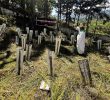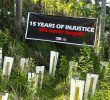On October 17, a number of media groups accused the president’s husband of seeking to muzzle the press through a series of libel suits. Over the last two years, 43 reporters, columnists, editors, publishers, and a subscription manager reportedly faced lawsuits filed by the president’s husband over stories alleging corruption and electoral fraud by the president and her husband. A Manila trial court issued warrants of arrest on October 16 against nine of the accused in the libel cases, including a former opposition senator.
Internet Freedom
There were no government restrictions on access to the Internet or reports that the government monitored e-mail or Internet chatrooms. Individuals and groups could engage in peaceful expressions of views via the Internet, including by electronic mail. Internet access is widely available.
Academic Freedom and Cultural Events
In June 2005 the intelligence service of the AFP released a presentation, “Know Your Enemy,” listing some press unions and student organizations as “enemies of the state” or communist fronts. The government did not otherwise interfere with academic freedom, and there were no government restrictions on academic freedom or cultural events.
b. Freedom of Peaceful Assembly and Association
Freedom of Assembly
The law provides for freedom of assembly, and, except for a few instances during the brief imposition of a state of national emergency, the government generally respected this right in practice. Although the law requires that groups request a permit to hold a rally, the government at times followed an unwritten policy of allowing rallies to occur without requiring the filing of a request.
On February 24, President Arroyo declared a state of national emergency, and all rally permits were cancelled. The police dispersed rallies commemorating the 1986 “people’s power” demonstrations, which culminated in the ouster of the Marcos regime, and those calling for the ouster of President Arroyo. The police detained UP professor and newspaper columnist Randy David at one of the rallies; he was released after a few hours.
In September 2005, President Arroyo declared that the police and armed forces would no longer exercise “maximum tolerance” in dealing with protesters. The administration urged municipalities to enforce strictly the requirements that protests be staged in designated areas and only with government permits. In practice, there did not appear to be any notable change in the way the authorities dealt with demonstrators. On April 25, the Supreme Court declared the September 2005 policy unconstitutional and upheld the policy of maximum tolerance in dealing with rallies and public demonstrations. On May 3, while upholding the constitutionality of the February 24 declaration of a state of national emergency, the Supreme Court declared illegal the warrantless arrest of Randy David and other protesters during a rally and the dispersal of the rally. The court found that there was no proof that those detained committed acts that would constitute “lawless violence, invasion, or rebellion,” and that the security forces therefore had no legal authority to curtail the rights of due process, peaceable assembly, and free speech.
Extrajudicial Killings, Terrorism









